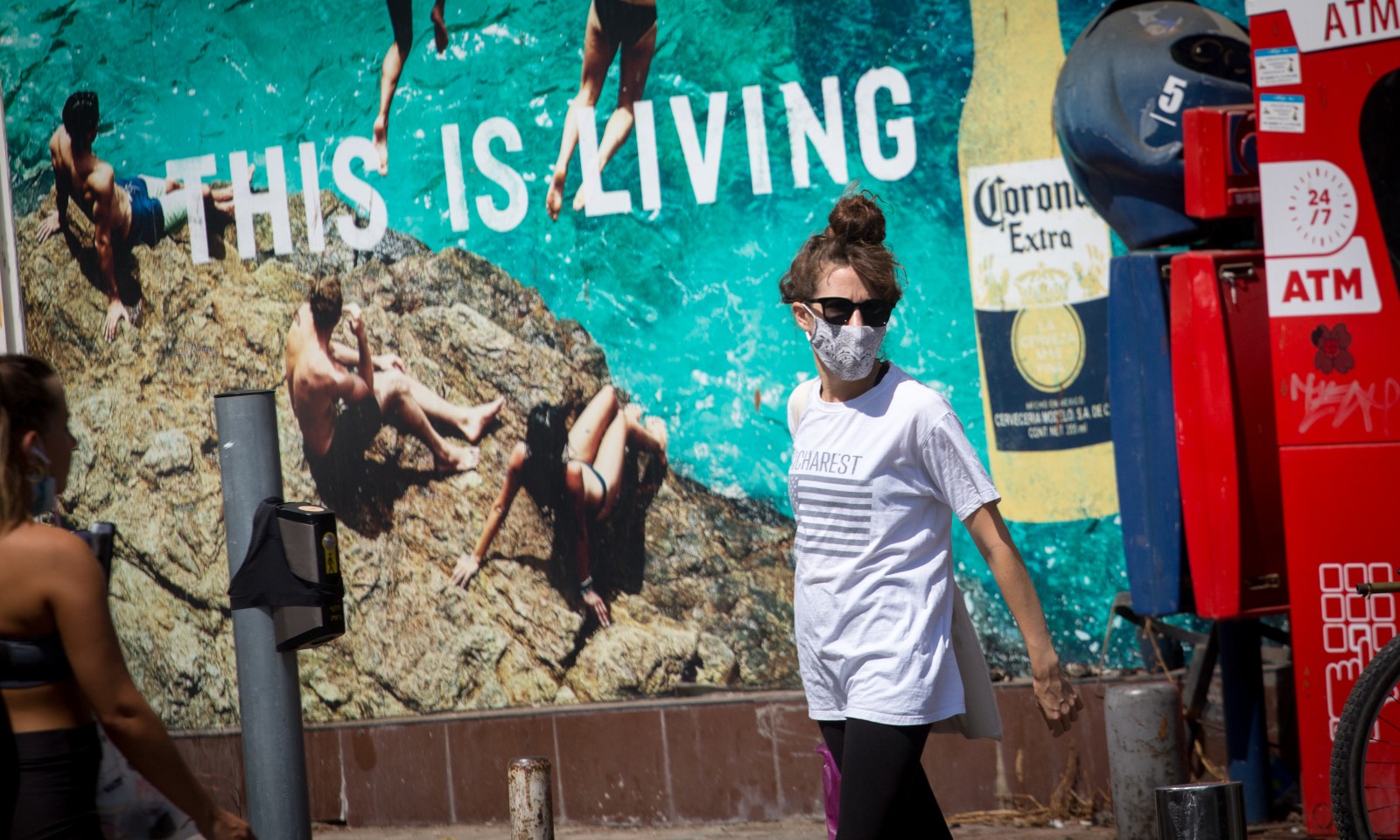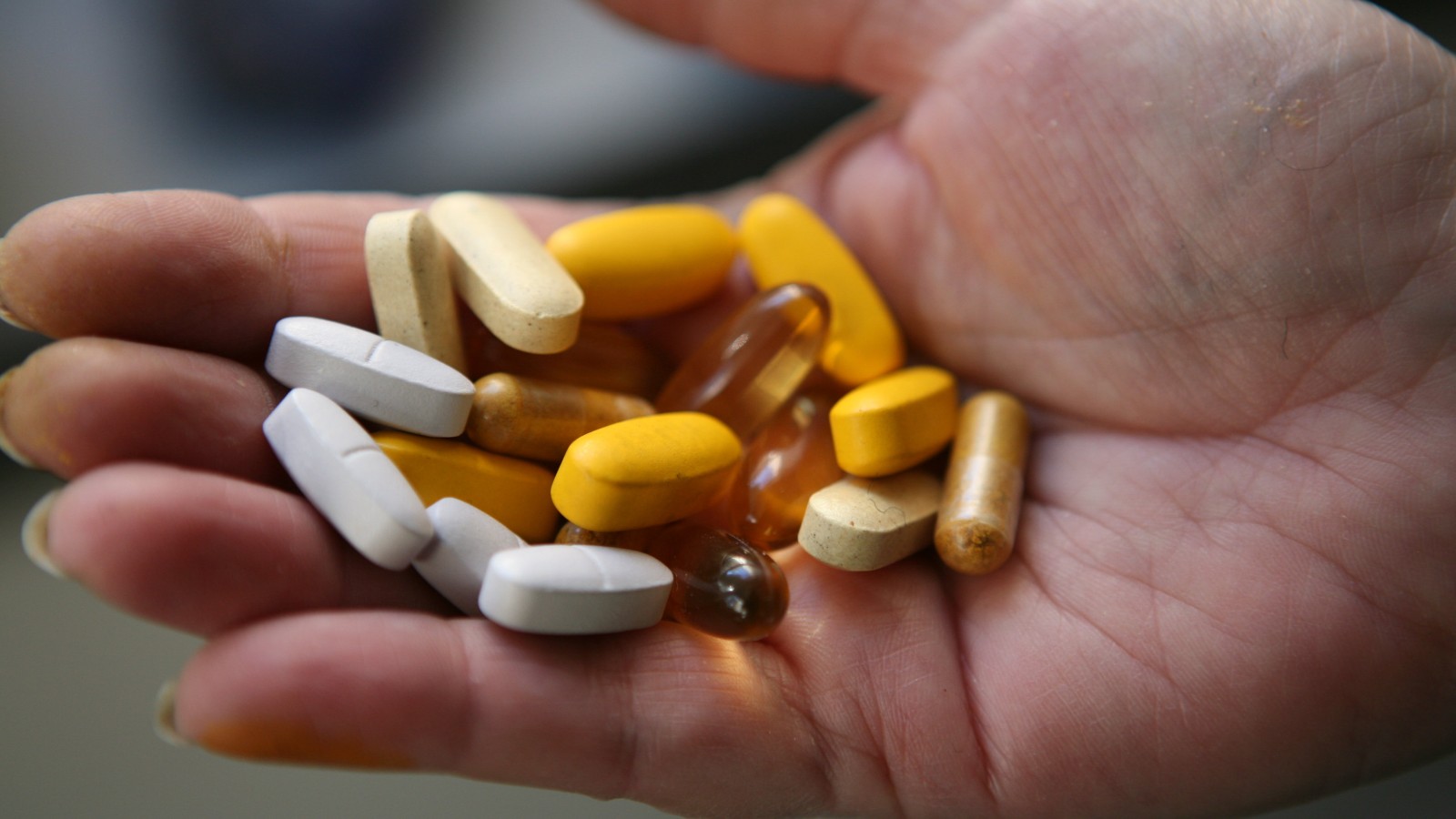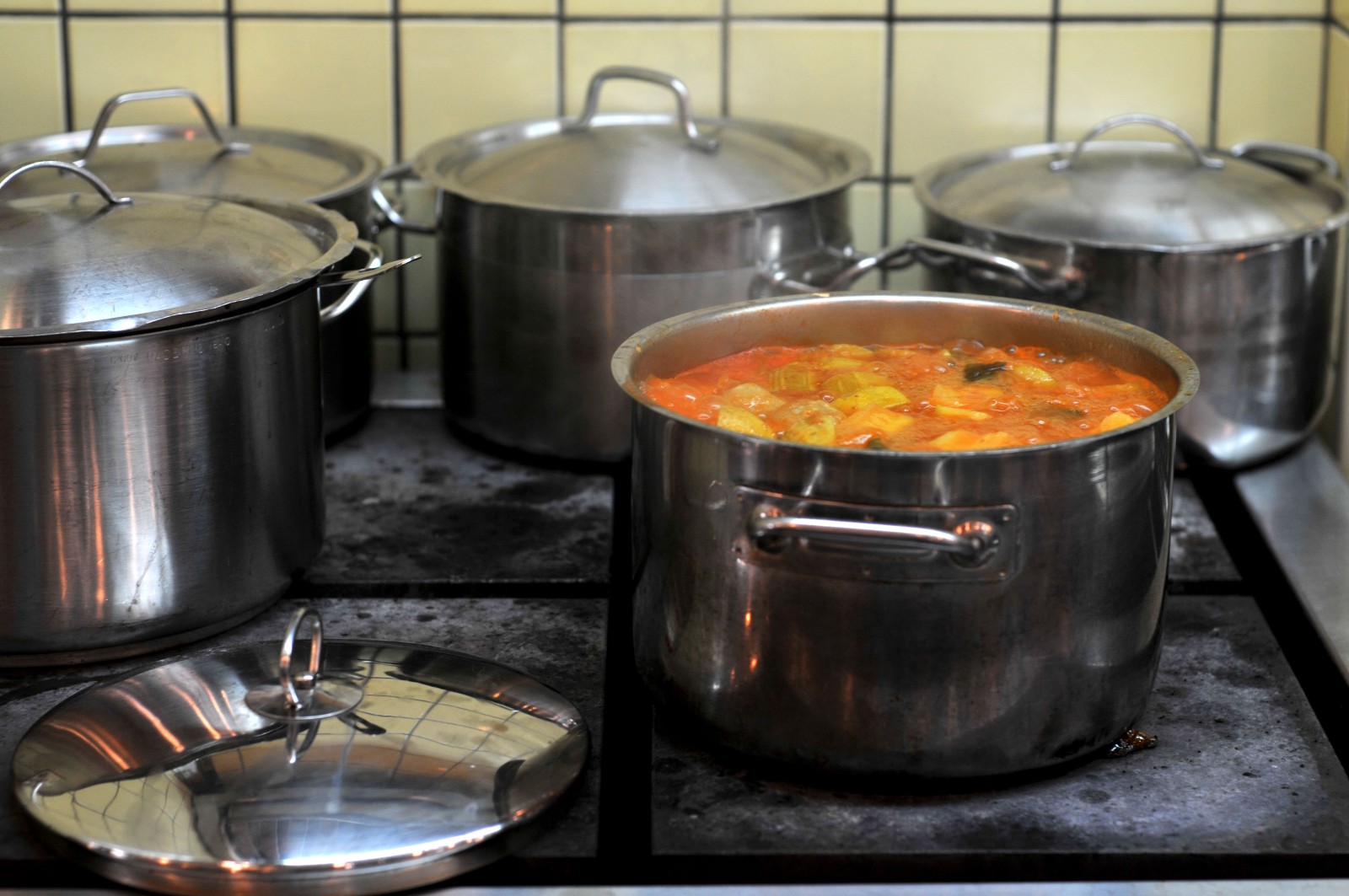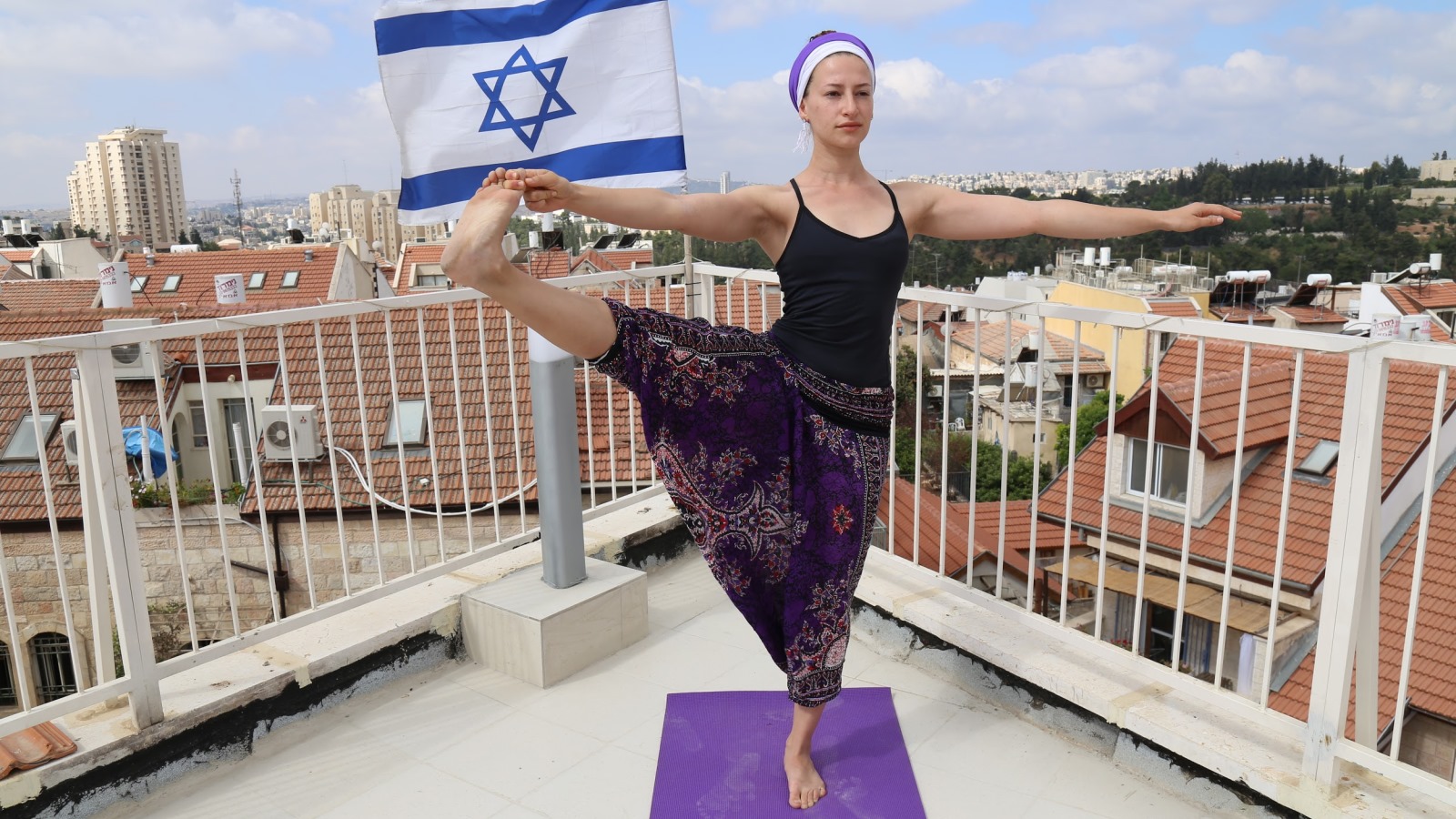
14 Ways To Stay Healthy This Winter
Follow our experts’ tips for keeping your mind and body in tip-top shape against Covid and other viruses.
Winter is on the way, and with it an increased risk of catching the flu, Covid-19 or a regular ol’ common cold.
ISRAEL21c gathered expert advice on how to protect your health against the physical and emotional challenges we’re experiencing in this ongoing pandemic.
According to the World Health Organization, Covid-19 spreads through contact with saliva, aerosol respiratory secretions or droplets released when an infected person coughs, sneezes, speaks or sings. The infectious particles can enter your mouth, nose or eyes, or you can pick them up from touching contaminated surfaces.
“Keeping distance is important but if aerosols are in the room they stay there, so you need a mask over your nose and mouth — especially in a small room where people are talking,” says Rivka Abulafia-Lapid, a lecturer in virology and immunology at Jerusalem’s Hebrew University-Hadassah Medical School.
She wears an N95 mask and changes it about once a day. She says disposable blue surgical masks protect you around 85 percent. (Metal oxide-embedded fabric masks like SonoMask claim about 99% effectiveness and are washable.)

The other basic is frequent handwashing. Abulafia says you should also use a 70% alcohol hand gel.
And now for our experts’ advice on nutrition, fitness and mental health.
WHOLE FOODS AND SUPPLEMENTS

Just as an engine needs the right fuel for peak functioning, your body needs the right food to keep the immune system purring properly.
Dr. Barbara Cohen, an osteopathic and family physician in the Jerusalem area, offers pointers on diet and vitamin/mineral supplementation geared to protecting us from viruses.
- Supplement
Cohen recommends 1,000 milligrams a day of vitamin C (buffered if you have acid reflux); 25-30 daily milligrams of zinc; 1,000 mg of quercetin, an anti-inflammatory and immune-boosting bioflavonoid; and a multivitamin if you’re not consistently eating a healthful diet.

A recent Israeli study found a significant association of low vitamin D levels with the likelihood of Covid-19 infection.
Cohen says that if a blood test reveals an ideal vitamin D range of 50 to 80, you do not need a supplement (too much D can damage kidneys). If your level is too low, take 1,000 to 5,000 international units daily depending on your numbers; discuss with your doctor. Fifteen daily minutes of exposing your arms and legs to the sun also boosts vitamin D, but don’t do this if you have fair skin or a predisposition to skin cancer.
Finally, she recommends that people with compromised immunity or frequent illness consult an herbal medicine practitioner about taking astragalus to strengthen the immune system.
- Avoid refined sugar and white flour
“Sugar weakens immunity and is not good for your heart, pancreas or cholesterol level,” says Cohen. “You’re better off sweetening your food with raw honey, Grade A maple syrup, coconut sugar or pure date syrup [silan], but in moderation.”
Choose slow-digesting whole grains over white flour. “Instead of pasta and bread, go with quinoa, barley, buckwheat, brown rice or whole oats.”
According to Cohen, a typical meal should contain 4 ounces of protein, half a cup of healthful starch like sweet potatoes, squashes or whole grains, and unlimited vegetables. Adjust depending on your individual situation, for example if you are gluten sensitive.

“Soups with beans, lentils or squash have vitamins, fiber and other minerals, which is good for the immune system and makes you full so you don’t overeat during the pandemic,” she adds.
She recommends up to two tablespoons a day of monounsaturated or polyunsaturated fats such as olive, coconut, safflower or sunflower oil. Other healthy fats are nuts (except peanuts), avocado, tahini, hummus, and nut butters.
“Oil can also be good for the immune system, rather than margarine or butter. Oils are important for cell function.”
- Calm your nerves

Relax your nervous system with practices such as hatha, restorative or yin yoga; qi gong or tai chi; deep breathing exercises; and guided meditation such as Tripura yoga for greater tranquility and better sleep. “You can find great classes on all of these practices on YouTube,” Cohen says.
Cohen also recommends walking, swimming or using a stationary bike or treadmill. “Thirty minutes of exercise daily would be ideal.”
FLEX YOUR MUSCLES
Esther Lehman, a Wingate-certified fitness instructor, personal trainer and water aerobics instructor in the Jerusalem area, says being sedentary for too long – as many of us are during the pandemic — weakens muscles and the immune system.
Not moving enough can cause joint problems and even blood clots, especially in the elderly.

“Our muscles are naturally lazy,” Lehman says. “We don’t like to exert ourselves too much. But when the body is sedentary, we tend to develop problems we didn’t have beforehand, like back problems and posture and balance problems. We tend to slouch around.”
She notes that the body quickly loses bone and muscle mass when we are sedentary, leading to osteoporosis and accumulation of fat.
“The whole body composition tends to change for the worse during lockdown and we have to prevent that from happening.”
Physical-fitness strategies
- Stick to a walking timetable
Designate times to get your legs moving — even if it’s just walking around the house every hour or so. If possible, take a brisk walk outdoors to give your heart and lungs a proper workout.
“Walk 15 minutes from home and 15 minutes back,” suggests Lehman. “If you tell someone to remind you to get out for a walk, that helps. A walking buddy can be dangerous because if your buddy can’t go, you won’t go either. You have to make a pact that nothing will stop you.”
She recommends walking somewhere away from cars and people so that you can take off your facemask and breathe in as much oxygen as possible.
- Purchase basic fitness equipment
“We don’t need a gym to stay fit,” says Lehman. “You can do an amazing workout at home using inexpensive equipment like a DynaBand, Ova ball and some hand and ankle weights you can buy at a store or online.”

- Find a qualified instructor
You may choose to work with a personal trainer remotely during the pandemic. Or you can find free routines posted by professional instructors on YouTube.
“Just make sure the instructor has been certified by a well-known organization because amateurs tend not to have a balance in their workout,” cautions Lehman.
- Vary your workouts
Exercise your muscles two or three times a week, and do aerobic exercise four times a week, Lehman recommends.
“Stretches every day are really important, too. When we are sedentary, our body starts developing fascia under the skin and that can become calcified and prevent a normal range of motion,” she says.
ROUTINE = RESILIENCE
Sharon Slater, a clinical psychologist and member of United Hatzalah’s Psychotrauma and Crisis Response Unit, specializes in counseling young adult women in Israel and abroad.

She notes that a US Census Bureau quarterly survey released in June showed anxiety disorders had tripled, depression quadrupled and twice as many people had seriously considered suicide in the past 30 days compared to the same quarter in 2019. The hardest-hit populations: young adults, women and the poor.
In a separate smaller poll, the Kaiser Family Foundation found in March that half of Americans surveyed are struggling with mental health due to Covid-19.
“This is staggering,” says Slater, who doubled her clientele during the first lockdown. “And we need to take into account that the numbers are probably higher now.”
Mental and physical health are tightly intertwined. When our emotional state is compromised by pandemic-associated anxieties — fear of illness, social isolation, financial and employment worries, loss of control, inability to predict when it will all end — we may be more vulnerable to illness.
Slater says that anxiety in moderation keeps us doing responsible things that lower our risk of infection, like socially distancing and wearing masks. But too much anxiety can lead to a breakdown in everyday functioning.
Mental-health resilience strategies
- Routine, routine, routine
“Create a routine that allows some amount of control over your daily schedule and your ability to predict what your weeks will look like,” Slater advises.
Begin your day with a consistent structure, be it breakfast, meditation, prayer or exercise. Schedule time alone and with family and friends, as well as moments to recharge when no one is making demands on you.
- Get up and get dressed
“Get up in the morning even if you have nowhere to go. If you sleep till the afternoon, you’ll wake up feeling depressed. And get dressed even if nobody will see you. If you stay in pajamas, there’s no delineation between day and night.”

- Choose energizing, challenging activities
Rather than Netflix binge-watching, choose energizing activities such as mindfulness meditation, which gives your brain and body respite from worries and trains you to focus on the present.
“Take up a new challenge,” Slater suggests. “One 11-year-old I worked with in Brazil taught herself Mandarin during the lockdown, and a 20-year-old client in Israel taught himself piano online.”
- Exercise
“Exercise is associated with improved mood. Think of it as medicine and take it regularly,” urges Slater. “A recent study showed that people who exercised during lockdown were less depressed and demonstrated greater mental resilience.”
- Get adequate sleep
“Lack of sleep is associated with depression and anxiety. Take advantage of the darker winter months and sleep seven and a half to nine hours per night. Studies show that healthy sleep habits help cardiovascular health and create a robust immune response.”
- Go outside even if you don’t have to
“I know a psychiatrist who recommends his depressed clients get at least 30 minutes of sunlight each day because it mitigates depression,” says Slater.
- Reframe reality
“Reframing experiences can free us psychologically. Using words like ‘challenging’ instead of ‘difficult’ helps us see things as an opportunity instead of a hardship. This affects how we process our feelings and the emotions we associate with them.”

